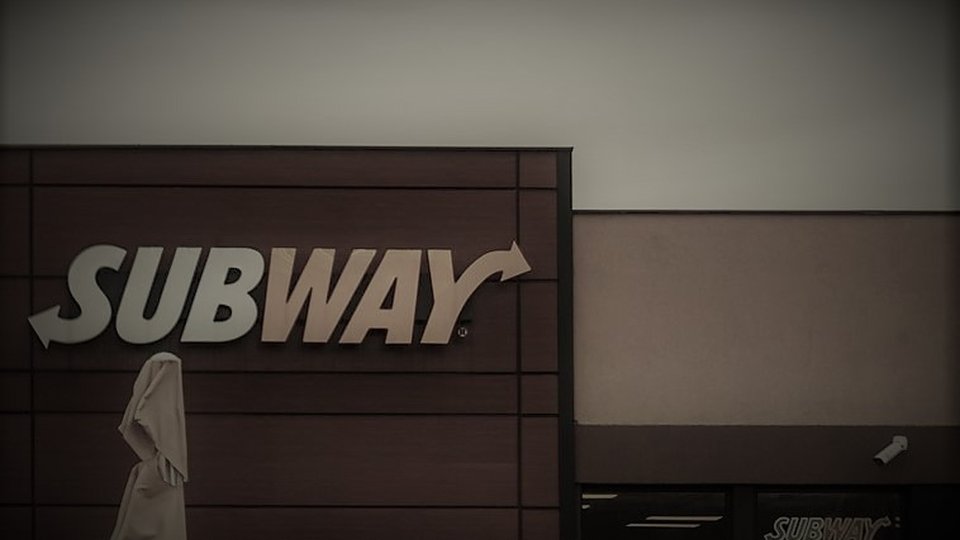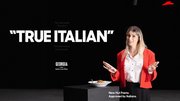Franchising
1 franchisee's story: 'Subway is working against us'
As Subway announced what it called its “biggest changes in the brand's history,” at least one franchisee wondered why they didn't include more direct answers to problems he fears could break the brand.

July 7, 2021
With its self-described "transformation" plan, it's clear Subway is working to boost its image and popularity among the sandwich-eating QSR crowd. Changes are coming to everything from one of its most foundational elements — bread — to brand customer experience elements, including a revamped digital interface and a smattering of store design improvements. But, what about the problems some of its franchisees have expressed with the brand? Is it specifically making any direct efforts — beyond what it calls its "biggest menu changes in history" — to get on better terms with these truest ambassadors of the brand?
Some of their issues were laid out in an April open letter, for example, sent to Subway owner, Elizabeth DeLuca, from about 100 franchisees (as well as a follow-up letter in May to DeLuca from about 250 franchisees). In those documents, franchisees alleged that owning a Subway location was nothing short of "a nightmare" and asked the brand's leadership to make changes.
Subway, however, insisted that the franchisees behind that action were nothing more than a vocal minority of owners whose views were contrary to that of the majority of its 10,000 franchisees. This website could not find a franchisee willing to go on the record, but one franchisee — who refused to be publicly identified — said his experience with Subway's leadership has been filled with fear of retribution for anything less than toeing the company line. In fact, he alleged that the brand's franchisee problems are systemic and rooted in the chain's current ownership.
He also said that the chain's latest franchise disclosure document specifically banned franchisees from speaking negatively about the brand lest they risk everything from loss of their 8% royalty rate, to outright loss of their store or stores.
Despite several inquiries from QSRweb, Subway declined to comment directly to each of the allegations the franchisee spelled out in the following question-and-answer session, or to permit an interview with Subway leadership around his allegations. Instead, the brand released the following statement:
"Subway is committed to the long-term success of our more than 10,000 franchisees and provides multiple forums for franchisees to share feedback, working hand-in-hand with them to ensure decisions are focused on maximizing their profitability. We are listening and engaging with franchise investors; striving for operational excellence in partnership with the franchise network; and elevating every aspect of our business — from digital innovation and focusing on crave-able food to creating integrated marketing campaigns and strategic partnerships that bolster our franchisees' business."
In fact, the company went on to say that the transformation plan going into effect on July 13 was part of its efforts to help its franchisees to better business.
"Our aim with the brand refresh is to inspire our franchise network — a group that's looking to us for what's new and next from the brand," the company told QSRweb. "Our planned updates in July demonstrate our commitment to investing in the Subway brand to deliver a return for our franchisees' restaurants and fuel our guests' passion for Subway."
The anonymous franchisee, however, disagreed, sharing his experience below.
Q: What would you say is your No. 1 problem with Subway as a company, relative to you as a franchisee today?
A:The biggest problem is that Subway is working against us. When you are a franchisor, your goal is to improve the revenue and growth of your franchisees.
With Subway it's the exact opposite. As a franchisee, it feels as though Subway corporate is working against us every day. Personally, I think they want us to fail.
"I am glad that franchisees are speaking out and the truth about Fred Deluca, Elisabeth Deluca, the BDAs, the one-sided arbitrations, and everything else is coming to light. For years they have been able to get away with everything, because people were afraid to tell their story. Hopefully that will end."
-Subway franchisee
The next main problem is lack of leadership. It starts at the top with Elisabeth Deluca (co-owner and widow of Subway co-founder, Fred Deluca) and (Subway co-founder) Peter Buck. While Dr. Buck is over 90 and never has had anything to do with Subway's business, the DeLucas have always had an active role in Subway.
In the days of Fred Deluca (who died Sept. 14, 2015), he was controlling everything. Now in the days of Elisabeth Deluca, it's a combination of her controlling some things from far away and being silent on everything else, thereby creating a power vacuum where bad actors within Subway have been happy to operate for years.
This has led to franchisee frustration with local development agents, corporate management like John Chidsey, and ownership like Elisabeth Deluca, but not knowing who's the one that's really behind all of the bad decisions.
Q: So how do these perceived problems with the chain's management affect its success and franchisees' success, by proxy?
A: Management has also not been responsive to the marketplace. One reason Subway is coming back slower out of the pandemic is the lack of drive-thru stores. Subway also lags behind other competitors when it comes to online ordering and delivery.
There are other issues related to the brand such as a one-sided franchisee agreement, no royalty forgiveness for the COVID-19 pandemic, (franchisees) not receiving vegetables more than once per week, disagreements about pricing, royalties, etc., but the bottom line is they don't really care about us.
Q: Subway has said it believes its issues with franchisees are limited to a few discontent owners, rather than the majority of its franchisees. So — and acknowledging that this would be speculation in some part — how many Subway franchisees do you feel currently have the same kinds of issues that you do with the company?
A: The answer is thousands.
At its peak Subway had a little bit under 28,000 stores. Per the last FDD, Subway now has 22,000 stores as of Dec. 31, 2020. That's 6,000 stores that felt that Subway was no longer worth the investment.
At its current pace, Subway is now losing close to 2,000 stores per year. That's more than some entire chains.
While those 6,000 stores felt it was better to leave, there are still thousands of us who are here still trying to help Subway build back and be No. 1 again.
However, (in) the new franchisee agreement with Subway, franchisees are no longer allowed to talk to each other about common problems they are facing at Subway. If we do talk to each other, we risk not only losing our stores and livelihoods but also risk paying a $150,000 early termination penalty to Subway.
Think about it, you put your life's savings into the store (and) you make the mistake of talking to another franchisee about a shared problem, then they take away your store. On top of that Subway will make you pay $150,000 in cash (as a fee) — so that they can take away your store, your life's savings.
Q: I understand what you're saying, but is there a possibility that, for instance, Subway's franchisee issues seem bigger than they are simply because those franchisees talking about the problems are a particularly vocal minority and don't represent the bulk of the chain's franchisees?
A: This is definitely not at play. If it were then Subway (would) only be targeting its more punitive measures at a small group of franchisees to get the bad apples out of the bunch. However, Subway is going after all the franchisees. They are taking over your purchasing, your hours of operation, your pricing, your equity structure — pretty much everything.
We are still in a global pandemic and — unlike McDonalds, Burger King and other brands — we (Subway) didn't recover as easily. We (Subway franchisees) called for a reduced royalty to help franchisees during these tough times.
Instead of bringing the royalty to 4.5% — which is what (Subway CEO and former Burger King CEO) John Chidsey had at Burger King, they have effectively raised the royalty to 10%. We said that we needed relief since 8% (Subway's royalty rate) is the highest royalty rate of any top 25 franchise in the U.S. They said if you don't want to pay 8% (with new conditions, according to the 2021 FDD), fine, the royalty is now 10%. And, if you don't want to pay the 10%, you have to turn over operational control of your stores to Subway.
This is a lose-lose situation. You can pay the 10% and lose most all of the profitability in the store or you can pay 8% with strings attached.
What happens if Subway wants to run $5 Footlong all year? Gross sales will go up but profitability will plummet. But Subway doesn't care about franchisee profitability since they get paid on gross sales.
What happens when Subway says that you need to spend $100k to refresh your store? As part of the new agreement, you can't say no to them.
And when you do your store refresh, (according to the 2021 FDD) you better not close the store for two days or more. If you do, Subway will have the right to take away your store with no right of arbitration.
While losing the store is scary, I can see a scenario, where once you've closed your store for two days because of a power outage, natural disaster, federal holiday, remodeling, whatever the case, Subway can hold it over you that they can take your store overnight with no questions asked.
Then you can truly never say no to them. They would run you into the ground, and when they felt as though they couldn't squeeze you for more, that's when it's time to bring in the next victim/new franchisee.
Q: Subway franchisees have also expressed issues with the chain's system with its business development agents(BDAs), so what role do BDAs play in the enforcement of the brand's contract with franchisees in their respective market area and do you also have issues in this area?
A:In the past when Subway was in a hyper-growth phase, Fred Deluca came up with a super-franchisee concept, called a Business Development Agent. A BDA would be given a territory and be tasked with recruiting as many new stores as humanly possible, even setting them up across the street from each other. In return, they would receive up to one-third of the royalties paid by franchisees from that territory.
There is an inherent flaw in this system insofar as your boss is also your competitor. When your boss (the BDA) has a store nearby yours, he'd like to take your customers and revenue.
While Fred Deluca was CEO, he was able to keep the BDAs in check and managed to settle disputes between BDAs and franchisees. During Fred's time, Subway's system was relatively balanced among its components (including) DAs, franchisees, purchasing, marketing. Fred made sure of that.
Now all these pieces are not in alignment and it shows. Nobody is in charge.
Towards the end of Fred's life and definitely after his passing, Subway started squeezing the BDAs. BDAs had 20-year contracts.
Since Subway had grown so rapidly, Fred felt that BDAs should make less since the growth pace was slowing down, even though (its) volume was the largest in the world. So the BDAs had to open twice the stores to make the same amount of pay. While this worked for a while, eventually BDAs ran out of stores to open. That's when BDAs saw their incomes cut in half.
At this point, some BDAs left, and new ones were brought in who were paid even less. This led to a cannibalistic relationship between BDAs and franchisees. Since a BDA is also a franchisee, if they can't make money from opening new stores, they can make money closing and selling existing stores. Every time a store is sold, that generates a new franchise fee, which gets split with the BDA.
The problem that BDAs had was that stores weren't closing down and they weren't opening up new locations. So BDAs had to force stores to close. They accomplished this by coming up with phony inspections where they would mark you down one week for having a smudge on the window, the next week for cutting the carrots the wrong size, then the next week for not carrying the most current Subway gift card.
That's three strikes. You're out.
The most nefarious BDAs started to target the most profitable locations in the territory, close them down with a bogus inspection and then buy the location for themselves. This was a very common practice after Fred Deluca passed and while Subway was led by Elisabeth Deluca.
Q: Does Subway as a company have a good checks-and-balance system, for instance, its governing board? If so, what if anything has come from them regarding some of your allegations?
A: Subway does have a board, but it is Dr. Buck and his son, Christopher, plus Elisabeth Deluca and her son, Jonathan Deluca. It's not an independent board.
As franchisees, we do have a franchisee association, North American Association of Subway Franchisees. However, for most of the association's tenure, they have never stood up to Subway and have, in many cases, gone along to get along.
Recently, as Subway has started to attack all franchisees, NAASF has taken a more pro-franchisee stance. They realize that Subway isn't just attacking the little guy anymore, they are attacking everyone.
Q: But today Subway announced its transformation plan, which it said is designed to help franchisees and their business goals, so do you think that's movement in a better direction or are franchisees, instead of reaching the tipping point in your view?
A: Many of us have decades into Subway. Some of us have our entire life's savings into Subway. We want to see it get better. We have too much at stake.
My hope is that the Delucas and Bucks cash out of Subway, and write a substantial rebate check from the sale to franchisees for all of our damages, pain and suffering.
I know they have hired some new executives, and I'm sure they think they can turn Subway around. But as long as the Delucas and Bucks are owners, and their cronies are in charge, things will never change.
I am glad that franchisees are speaking out and the truth about Fred Deluca, Elisabeth Deluca, the BDAs, the one-sided arbitrations, and everything else is coming to light. For years they have been able to get away with everything because people were afraid to tell their stories. Hopefully, that will end.
 ChatGPT
ChatGPT Grok
Grok Perplexity
Perplexity Claude
Claude








